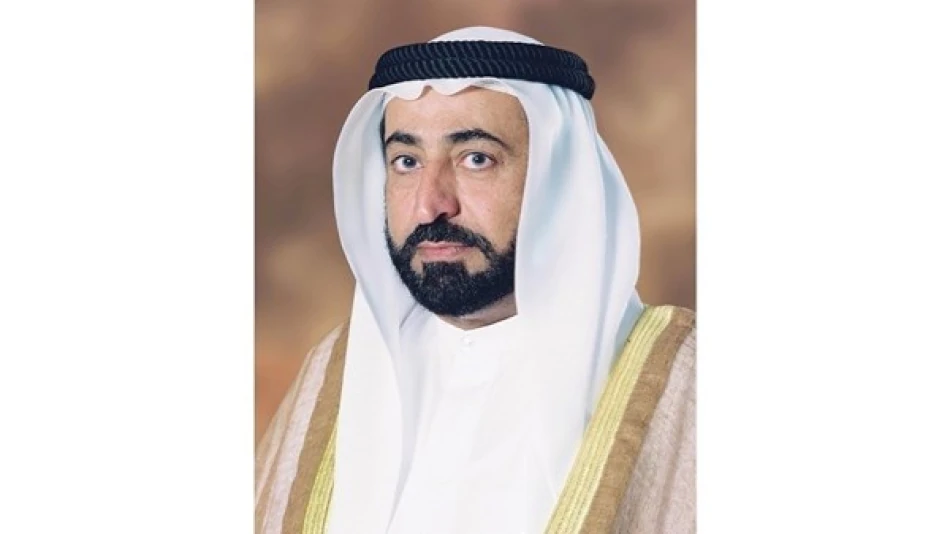
Sharjah Ruler Issues Decree Approving General Organizational Structure of Emirate's Archives Authority
Sharjah Establishes New Archives Authority in Push for Cultural Preservation
The Emirate of Sharjah has formalized the organizational structure of its new Archives House through an Amiri decree, marking another strategic move in the UAE's broader effort to preserve cultural heritage and strengthen institutional frameworks. The initiative reflects Sharjah's continued positioning as the UAE's cultural capital while potentially setting a template for similar institutions across the Gulf region.
Institutional Framework Takes Shape
Sheikh Dr. Sultan bin Muhammad Al Qasimi, Supreme Council Member and Ruler of Sharjah, issued the decree establishing the general organizational structure for the Archives House in the emirate. The move grants the Executive Council broad authority to develop detailed operational frameworks and adapt the institution's structure as needed.
Under the decree, the Executive Council will have the power to create, merge, or dissolve organizational units within the Archives House, providing flexibility for future expansion or restructuring based on operational requirements.
Strategic Timing and Regional Context
The establishment comes as Gulf states increasingly recognize the economic and soft power value of cultural institutions. The UAE has invested heavily in cultural infrastructure over the past decade, with Abu Dhabi's Louvre and upcoming Guggenheim representing flagship international partnerships, while Dubai focuses on contemporary art and design.
Sharjah's approach differs by emphasizing archival preservation and documentation, potentially filling a crucial gap in the region's cultural ecosystem. This focus on historical documentation aligns with broader digitization trends seen in countries like Singapore and Estonia, where national archives have become central to digital governance strategies.
Implications for Governance and Heritage
Institutional Modernization
The flexible organizational structure suggests Sharjah is preparing for rapid expansion of archival services. The ability to restructure units without new legislation indicates a forward-thinking approach that could accommodate digital transformation initiatives or international partnerships.
Economic Considerations
For investors and cultural sector stakeholders, the Archives House represents potential opportunities in digitization technology, archival services, and cultural tourism. Sharjah's track record of sustained investment in cultural projects suggests long-term commitment and stable funding prospects.
Competitive Positioning
While other emirates compete through mega-projects and international brands, Sharjah's focus on archives and documentation could establish unique competitive advantages. Historical archives often become valuable resources for academic research, legal documentation, and cultural tourism—sectors with steady, long-term revenue potential.
The timing also positions Sharjah to benefit from growing regional interest in genealogy and family history, particularly as Gulf societies seek to preserve traditions amid rapid modernization.
Looking Forward
The Archives House decree represents more than administrative restructuring—it signals Sharjah's commitment to becoming the Gulf's primary center for historical preservation and documentation. Success will likely depend on the institution's ability to balance traditional archival functions with modern digital accessibility, potentially creating a model for similar initiatives across the region.
Most Viewed News

 Layla Al Mansoori
Layla Al Mansoori






